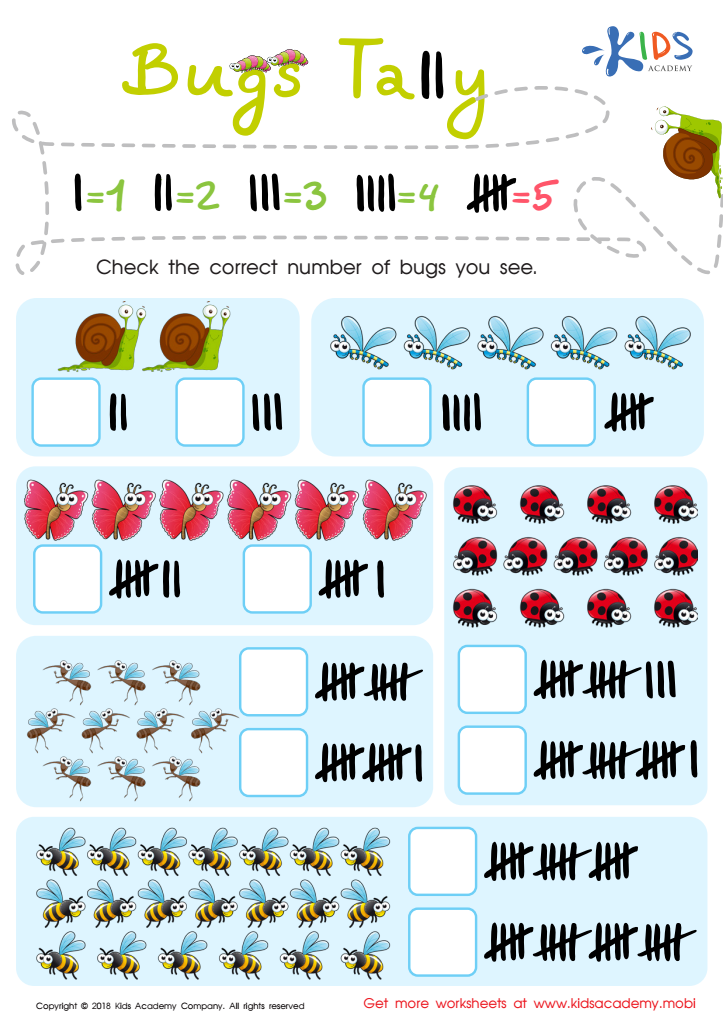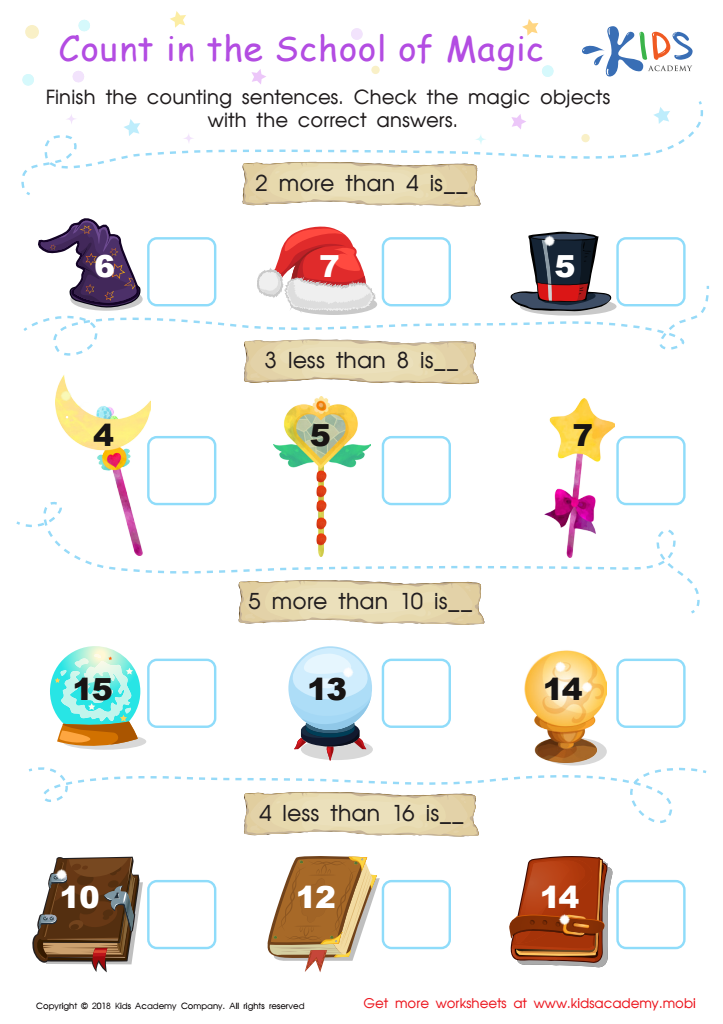Observational skills Numbers Worksheets for Ages 7-9
3 filtered results
-
From - To
Enhance your child's mathematical abilities with our Observational Skills Numbers Worksheets for ages 7-9. These engaging, printable resources are designed to develop critical thinking and foster keen observation skills while making learning enjoyable. Each worksheet features fun activities that encourage children to identify, compare, and analyze numbers in various contexts. Perfect for both classroom and home use, these worksheets provide a solid foundation in mathematics while nurturing your child's attention to detail. Help your young learners build confidence and competence in their math skills today by exploring our comprehensive range of worksheets. Empower their learning journey with us!


Bugs Tally Worksheet


Count in the School of Magic Worksheet


Party Arrays Worksheet
Observational skills play a crucial role in the cognitive and social development of children aged 7-9, making it essential for parents and teachers to prioritize these skills. During this age, children become more curious and capable of critical thinking. Enhancing their observational skills helps them to not only learn effective problem-solving techniques but also to develop a deeper understanding of their surroundings.
For teachers, fostering these skills in the classroom can enrich lessons by enabling students to engage more actively in learning. Observational activities encourage children to closely analyze elements within math, science, and while reading. For instance, they can investigate patterns in numbers or summarize key details in stories, boosting both comprehension and arithmetic skills.
Parents can support this development through everyday activities—like asking children to notice shapes in nature or analyze traffic patterns—teaching them to look beyond the surface. Increased observational skills not only promote academic success but also instill lifelong critical thinking abilities, helping children prepare for real-world challenges. Ultimately, caring about and cultivating observational skills sets the foundation for effective communication, fosters creativity, and enhances overall cognitive growth, making it a vital focus for both parents and educators.
 Assign to My Students
Assign to My Students

















